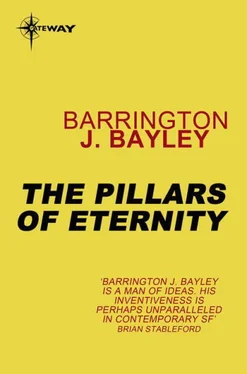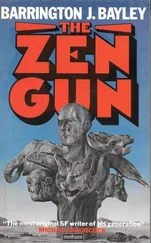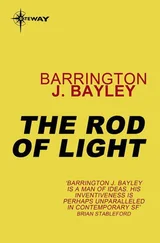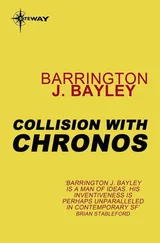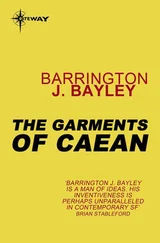He should have parted company with her, but he had not. He sensed that she had not yet shaken off the wish to commit suicide, and his colonnader obligations still told on him. He had embarked on a course of mental therapy, of the kind that had so deftly been practiced on him when he was a boy in Theta, and of whose methods his subsequent training had given him some knowledge.
It was odd, he admitted, that a man bent on total self-obliteration should, in passing, bother to mend the self-feeling of someone else. Mace, of course, had no idea that any form of process was being practiced on her. Colonnader techniques were not that formal. All she knew was that she had close discussions with Boaz, and that somehow her attitude toward herself gradually changed.
They had come to know one another well in the past year. Boaz, his tongue loosened perhaps by his earlier disclosure to Gare Romrey, as well as by the confidentiality of the therapist-patient relationship, had even confessed the nature of his mission to Mace.
She had listened with fascination, and none of the criticism or uncomprehending blame he could have expected from most. ‘But what does your mentor say to this?’ she asked eventually.
‘Madrigo?’ Boaz made a wry face. ‘He thinks I have fallen victim to cachexia. He does not admit the possibility of what I am trying to do.’
‘Cachexia?’
‘Mental disturbance. An ill-conditioned state of mind. When colonnaders use the term, it betokens a particularly serious kind of mental illness.’
‘Do you think you could have it?’
‘Of course I have it. The mistake is in thinking it is based on delusion. True, all other cases of cachexia are based on delusion. But in me it is based on reality. A reality deeper than any that underpins sanity. Not even Madrigo understands that.’
He sighed, the conversation coming briefly to his memory, and rose. ‘It is time for me to find my friends, Mace. You may go into the city if you wish. Or remain here. You have your own key.’
She nodded, and carried on sorting through the cards. Boaz hesitated; he would have liked to ask her for them, preferring to have them with him always, but decided it would be impolite. He left the ship, passed up the flow-elevator to the surface, and ventured cautiously onto the street.
He had wondered if he could have handled events better on Meirjain, but could see no ethical way in which he could have prevented his identity from becoming known to the authorities. Since then he was almost certainly a fugitive (although he had heard no official posting of his name) and the necessity of maintaining close proximity to his ship was proving a decided disadvantage. It was, in fact, the main reason why he had delayed events by nearly a year while he skulked on the edge of the econosphere, only now reckoning it relatively safe to come to Kathundra, a member of the Central Clique of worlds, a seat of government, though only one of several, a centre of science and learning, and home of vices more sophisticated and depraved than raw boundary planets had yet imagined.
Mace, he imagined, would have a good time here. At other ports of call he had sometimes had occasion in passing to glance at her erotic adventures during his voyeuristic surveys.
She had once, with some eagerness, offered herself to him, but he had been obliged to decline. When he shut down his bone functions long ago, he had relinquished all sexual feeling with them.
He took a deep breath. At last he was on the planet Kathundra, in the city of Kathundra (on all Clique worlds the capital bore the same name as the planet). Here, within the ten miles of freedom his ship allowed him, was the man who all these years had been waiting for him.
He strolled for a while through the glittering walkways, interrogating his ship with orders to ascertain whether he was under observation. Because his shabby modsuit identified him as an outworld visitor, he was constantly beset by commercial adflashes and come-ons, as well as accosted by various individuals offering services likely to be sought by the tourist, and all of which he rudely refused. Finally satisfied that he had done all he could, he entered a travel agency. Kathundra boasted a modern transport system working on the instantaneous acceleration principle – an adaptation of star drive – and all he had to do was wait his turn at a line of stage chambers, dial a number and step inside. The door slid shut behind him, sealing the ceramic-lined cubicle with a hiss. He was seized in a complex field of uni-directional electrostatic forces which separated ever so slightly the positive and negative charges of every atom in his body. Other, more powerful uni-directional fields were added, acting on those charges and accelerating Boaz down a ceramic-lined tunnel. He passed through perhaps thirty switching points in the process of being routed to his destination, his velocity retarded or accelerated in each case so as to slot him in with millions of others passing through those same points. Boaz was not aware of what was happening, of course. The entire process, involving a roundabout journey of perhaps ten miles, took place in the standard interval of one-twentieth of a second. All he was conscious of was that a light came on and the cubicle number on the wall suddenly changed. He stepped out into the house of Aban Ebarak.
For a moment Boaz felt slightly dizzy, a consequence of the generally excellent transport system unique to him. While he was in the acceleration fields his ship’s beams, though they were able to track him, were vitiated in their integrative functions. If he were trapped in the system for, say, a matter of minutes, he would probably die.
He stood in a small vestibule. To one side a broad window (which Boaz knew to be genuine, not a display) revealed that the scientist Ebarak’s house was half a mile up a tower block and gave a breathtaking view of the jungle of shafts which was Kathundra. Ebarak himself was not in evidence, though Boaz had received the acceptance signal before stepping into the stage chamber. The scientist had in fact, been expecting him for days.
Pausing to recover from the journey, he moved to a door and opened it, disclosing a neat study. Ebarak was within, poring over a reading screen. He looked up at the intrusion, a smallish, tidy man, with a pale face, chiselled nose, and mild blue eyes, which, when they were directed at anything or anyone, seemed to turn flint-hard.
‘Ah, hello, Joachim. Sorry I wasn’t on hand to greet you. I was just reading up on some material here. The memory gets a bit rusty, you know.’ Ebarak was one of many scientists who did not trust adplants too far, believing them to make the intellect lazy. He did not have a single memory adplant and only a standard type of adplanted calculator. The book he was reading on the screen, Boaz saw, was one on the econosphere’s index of prohibited texts: Whitlaw’s Cases of Relativistic Event Reversal . It dealt with the way in which time order could seemingly be reversed in small, insignificant ways as a result of the relativity laws.
The scientist killed the screen as he stood up. His mouth firmed. ‘Have you got them with you?’
‘I have.’ Boaz took a pouch from a pocket of his modsuit. He handed it to Ebarak, who loosened the cord at the neck and poured out a number of gems onto the palm of his hand.
‘They look so ordinary, don’t they?’ he murmured.
Laying the pouch on his desk, he picked up a gem between thumb and finger and brought it close to his eye, peering intently. After a moment in which he rolled the gem to tilt facet after facet, Ebarak saw a tiny scene. He saw himself, in his laboratory, fitting something gem-sized into an instrument with a long, shiny barrel.
He smiled. He was, he realized, looking a few minutes into his own future.
Читать дальше
